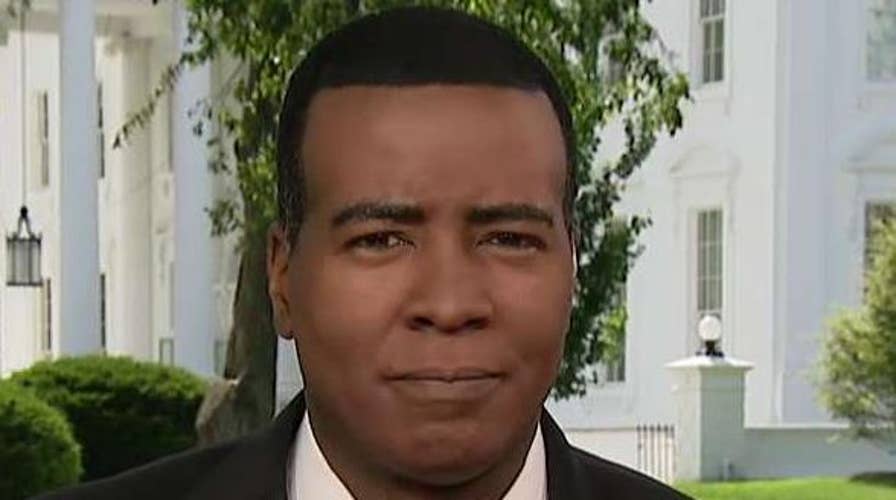Trump points finger at Iran for oil tanker attack, Iran hits back
The president says the Iranian regime has attacked oil tankers because they are in 'deep, deep trouble' from sanctions; Kevin Corke reports from the White House.
Rep. Adam Schiff. D-Calif., often a harsh critic of President Trump, agrees with him on one thing: Iran was behind the bombing of two oil tankers near the Strait of Hormuz last week.
The Islamic nation has denied responsibility for the attack, but Trump and his administration were quick to point the finger at them. While the president has been accused of prematurely reaching conclusions after past attacks, Schiff and Trump are on the same page this time.
IRAN RESPONSIBLE FOR 'BLATANT ASSAULT' ON OIL TANKERS IN GULF OF OMAN, MIKE POMPEO SAYS
"There's no question that Iran is behind the attacks," Schiff said on CBS' "Face the Nation" Sunday morning. "I think the evidence is very strong and compelling. In fact, I think this was a class 'A' screwup by Iran to insert a mine on the ship. It didn't detonate. They had to go back and retrieve it. I can imagine there are some Iranian heads rolling for that botched operation."
The Democratic chair of the House Intelligence Committee ended his support of Trump there. He quickly turned to the lack of support the U.S. has received from the international community, firmly placing the blame on the commander-in-chief.
Schiff said that this "shows just how isolated the United States has become," and claimed that when the Trump administration pulled out of the Iran Nuclear Agreement, they ignored advice from other countries and American intelligence.
"Our allies warned the United States, I think our intelligence agencies warned policymakers, that this kind of Iranian reaction was likely a result of a policy of withdrawing from the Iran Nuclear Agreement," Schiff said.
Trump has taken the approach of increasing economic pressure on Iran in the form of sanctions. Schiff said that this tactic "has massively failed and only heightened the risk of conflict."
PENTAGON CLAIMS IRAN SHOT DOWN A US DRONE PRIOR TO OIL TANKER ATTACKS
The president's decision to withdraw from the Iran Nuclear Agreement was in line with critics of the deal, including National Security Adviser John Bolton and Israeli Prime Minister Benjamin Netanyahu, who claimed that the agreement did not go far enough to ensure that Iran will not develop a nuclear weapon in the future.
Despite signs of Iranian defiance, the Trump administration is confident that sanctions will cripple the already poor Iranian economy to the point that Tehran will be willing to negotiate new terms. Secretary of State Mike Pompeo said on Fox News Sunday that while the administration hopes to avoid war with Iran, "will continue to take actions that deter Iran from engaging in this kind of behavior."





